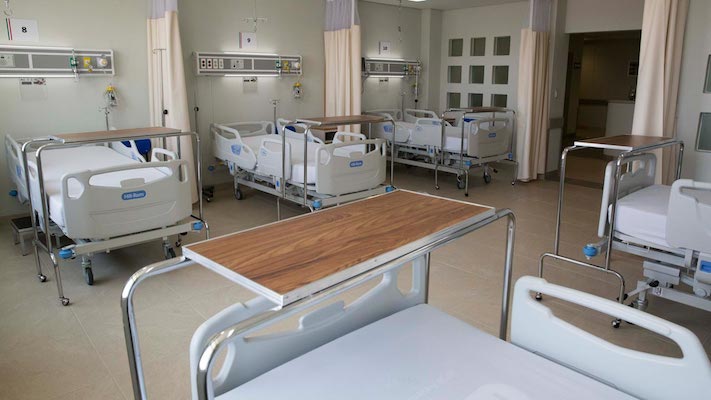In a bold move to reverse medical tourism in Nigeria, the National Hospital Abuja is planning a healthcare revolution with an array of ambitious projects to transform it into a world-class medical institution.
The hospital’s chief medical director, Prof Muhammad Raji Mahmud, disclosed this when he led a team from the hospital on a courtesy visit to LEADERSHIP’s head office ahead of the hospital’s 25th-anniversary celebration.
The CMD revealed extensive plans, including collaborations with international medical experts, cutting-edge facilities, and specialised centres, to place Nigeria at the forefront of healthcare delivery in Africa.
As part of this initiative, he said the hospital signed a Memorandum of Understanding (MoU) with a group of medical professionals from the United Kingdom. This collaboration will see 24 UK-based doctors visiting the hospital rotationally, with secured accommodations.
Prof. Mahmud disclosed that the first batch of these doctors is expected to arrive by the end of September.
He said the program facilitates a two-way learning exchange, allowing visiting doctors and local medical staff to benefit from diverse medical practices and adapt to varying healthcare environments.
“In addition to learning from each other, this collaboration may also bring essential medical consumables to the hospital, further boosting our capabilities,” said Prof. Mahmud.
Prof. Mahmud also expressed optimism that the recent increase in the federal minimum wage and the government’s renewed focus on the healthcare sector under President Bola Tinubu’s administration will further support these initiatives.
“With increased funding, we can expect better equipment, improved working environments, and enhanced motivation for medical personnel, which will help us retain and attract top talent,” he said.
One of the key projects under the hospital’s expansion plan is the construction of a state-of-the-art Presidential Wing and VIP Wing. He said these wings will feature world-class facilities and accommodations that will attract high-profile patients and specialists worldwide.
The CMD also said the hospital plans to establish a toxicology lab to serve VIPs and heads of state across Africa, addressing a significant gap in the continent’s healthcare infrastructure.
Other significant projects include the development of a modular theatre and clinic, which will house a renal centre, a cardiac centre for open-heart surgery, and a robust orthopaedic centre specialising in knee replacements and other orthopaedic procedures. Prof. Mahmud explained that these facilities are expected to draw patients from within and outside Nigeria, reducing the need for Nigerians to seek such specialised care abroad.
He stated that the hospital plans to build Africa’s largest neuroscience institute, offering comprehensive neurosurgery, neuropsychiatry, neurology, and neuro-rehabilitation services.
According to him, the institute will also focus on endovascular therapy, a less invasive surgical procedure, and will include a dedicated stroke centre managed by neurologists and neurosurgeons.
Prof Mahmud acknowledged the financial challenges in realising these plans but emphasised that discussions with local and international partners are ongoing to explore potential Public-Private Partnerships (PPP) to support the projects.
“These initiatives are part of our long-term vision to position Nigeria as a leader in healthcare on the African continent. By providing these specialised services, we aim to reduce the number of Nigerians seeking medical care abroad and attract medical expertise back to the country,” he added.
He said that the National Hospital Abuja is set to redefine healthcare delivery in Nigeria and across Africa, providing top-tier medical services that meet international standards.





